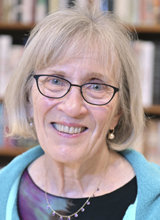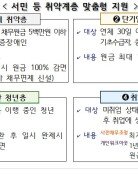Nobel laureate Goldin underscores corporate culture transformation to address low fertility rates
Nobel laureate Goldin underscores corporate culture transformation to address low fertility rates
Posted October. 11, 2023 10:18,
Updated October. 11, 2023 10:18

Harvard University’s Claudia Goldin, crowned with the Nobel Prize in Economics for her research on gender disparities in the workplace, has sounded a resounding call for change. In her meeting with journalists, the Harvard economist highlighted the persistent gender gap in labor markets, with particular attention drawn to South Korea’s strikingly low birth rates.
In an interview with The Associated Press, Goldin delved into the reasons behind the enduring workplace gender gap worldwide, despite women consistently outperforming men in educational attainment, excelling both in college graduation rates and high school achievements.
Goldin squarely attributed the gender pay gap to the disproportionate burden women bear in terms of childbirth and childcare responsibilities. She also criticized the corporate culture in the United States, where men continue to earn more than their female counterparts. The root of the issue, she argued, lies in the traditional division of labor between genders, with men predominantly focused on careers while women shoulder the lion’s share of childcare responsibilities. Goldin emphasized the imperative of societal support for childcare.
Asked about Korea’s low birth rate, Goldin underscored the gravity of alarmingly low fertility rate. She showed keen interest as proven by the immediacy of her recounting the figures of Korea’s fertility rate, which plummeted to a mere 0.86 in the first quarter of 2022.
Goldin said the challenge posed by this abysmally low fertility rate transcends individual households and demands a fundamental transformation of corporate and business culture. Furthermore, she underscored the long-term nature of the issue, emphasizing that the shift towards higher fertility rates necessitates the re-education of adults from older generations, as they invariably influence “their sons.” The Nobel laureate emphasized the critical importance of reshaping the perceptions of the older generation and men in the ongoing quest to address these gender disparities.
clearlee@donga.com






